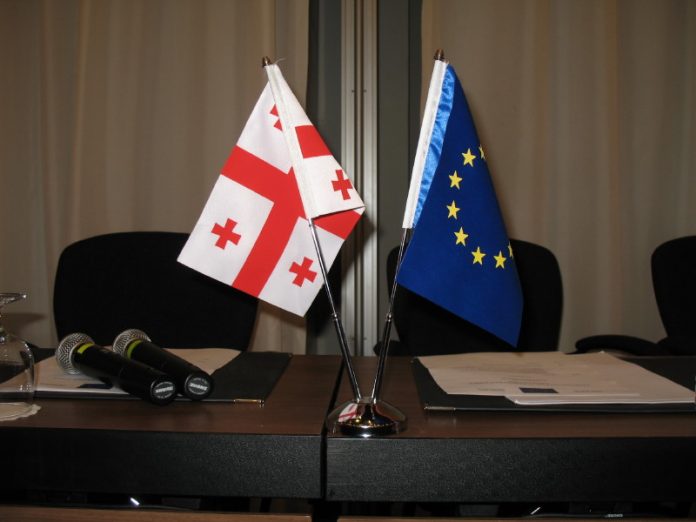In 2018, Georgia confirmed its strong commitment to political association to and economic integration with the EU, as highlighted by its government’s high-level meeting with European Commissioners in November, and substantial progress in delivering on its Association Agreement commitments.
January 31, the 3rd Association Implementation Report on Georgia was released. This report sets out the state-of-play of Georgia’s implementation of its commitments under the EU-Georgia Association Agreement over the past year, ahead of the EU-Georgia Association Council, to be held in Brussels on 5 March 2019. The report highlights that continued legislative reform and steady implementation of rules and standards in line with the Association Agreement are crucial to allow Georgian citizens to fully reap the benefits of this close relationship between the EU and Georgia.
“The European Union and Georgia have excellent relations that we further intensified over the past year. Since March 2017, more than 300,000 Georgian citizens have been able to travel visa-free to the Schengen area for short stays, and since 2009, more than 63,000 businesses and farmers have received loans. The European Union will continue to accompany and support the Georgian authorities in implementing important reforms under the Association Agenda, which provides priorities for our joint work until 2020 – reforms that are bringing more and more benefits to Georgian and EU’s citizens alike”, said the High Representative/Vice-President, Federica Mogherini.
“The implementation of the Association Agreement continues to bring positive results to Georgian and EU citizens. The implementation of the agreed actions of our High-level Meeting back in November will provide further momentum to our relationship. The EU is Georgia’s largest trade partner and we will cooperate to further develop Georgia’s export potential. In September 2018, the first European School outside the EU was launched in Tbilisi, and Georgia is stepping up its participation in programmes such as Erasmus+, encouraging student and youth exchanges”, said the Commissioner for European Neighbourhood Policy and Enlargement Negotiations, Johannes Hahn.
This 3rd Report takes stock of Georgia’s implementation of the Association Agreement and in particular the Association Agenda since the last EU-Georgia Association Council of 5 February 2018. Overall, Association Agreement commitments, including as regards its Deep and Comprehensive Free Trade Area, have been implemented in line with agreed timelines. Over the past year, Georgia has made progress in strengthening its democratic institutions, in the framework of the constitutional reform process and public administration reform. The Presidential elections were held in an overall competitive environment but also raised some shortcomings. Modest progress was made in reforming the justice sector, but challenges remain to consolidate the results achieved and to make further progress in this area. In that regard, it is noteworthy that the 4th wave of legislative reform was initiated upon establishment of the Parliament-led platform for judiciary reforms. Going forward it is important for the Georgian government to continue fostering an open dialogue with all political actors and civil society. In the past reporting period, Georgian authorities also continued their efforts to tackle the issues regarding irregular migration.
The report underlines the benefits for Georgian citizens of the country’s economic integration with the EU though the implementation of its Deep and Comprehensive Free Trade Area commitments. With the progressive approximation of technical regulations and standards with those of the EU, Georgia has been increasingly able to strengthen its participation in international value chains. Regarding external trade, the EU continued to be the most important partner of Georgia, with a 27% share in the country’s overall trade in 2017. Preliminary data for 2018 suggests a continuation of this trend. The opening of the EU market to new animal-origin products from Georgia was an important milestone in this regard.
Last year marked the 10 year anniversary of the conflict between Russia and Georgia. The European Union continues to firmly support Georgia’s sovereignty and territorial integrity within its internationally recognised borders. The European Union’s commitment to peaceful conflict-resolution remains as strong as ever, through the work of the EU Monitoring Mission in Georgia and the EU Special Representative for the South Caucasus and the crisis in Georgia. In June 2018, the Georgian Parliament adopted a legislative package “A Step for a Better Future” to promote peace and opportunities for the people in Abkhazia and South Ossetia. Georgia also continues to be an important partner of the EU in the area of security, the fight against terrorism and transnational organised crime. Georgia also participates in the EU-led missions and operations, which contribute to increasing the resilience of countries worldwide and strengthening the EU’s role as a global security provider.

